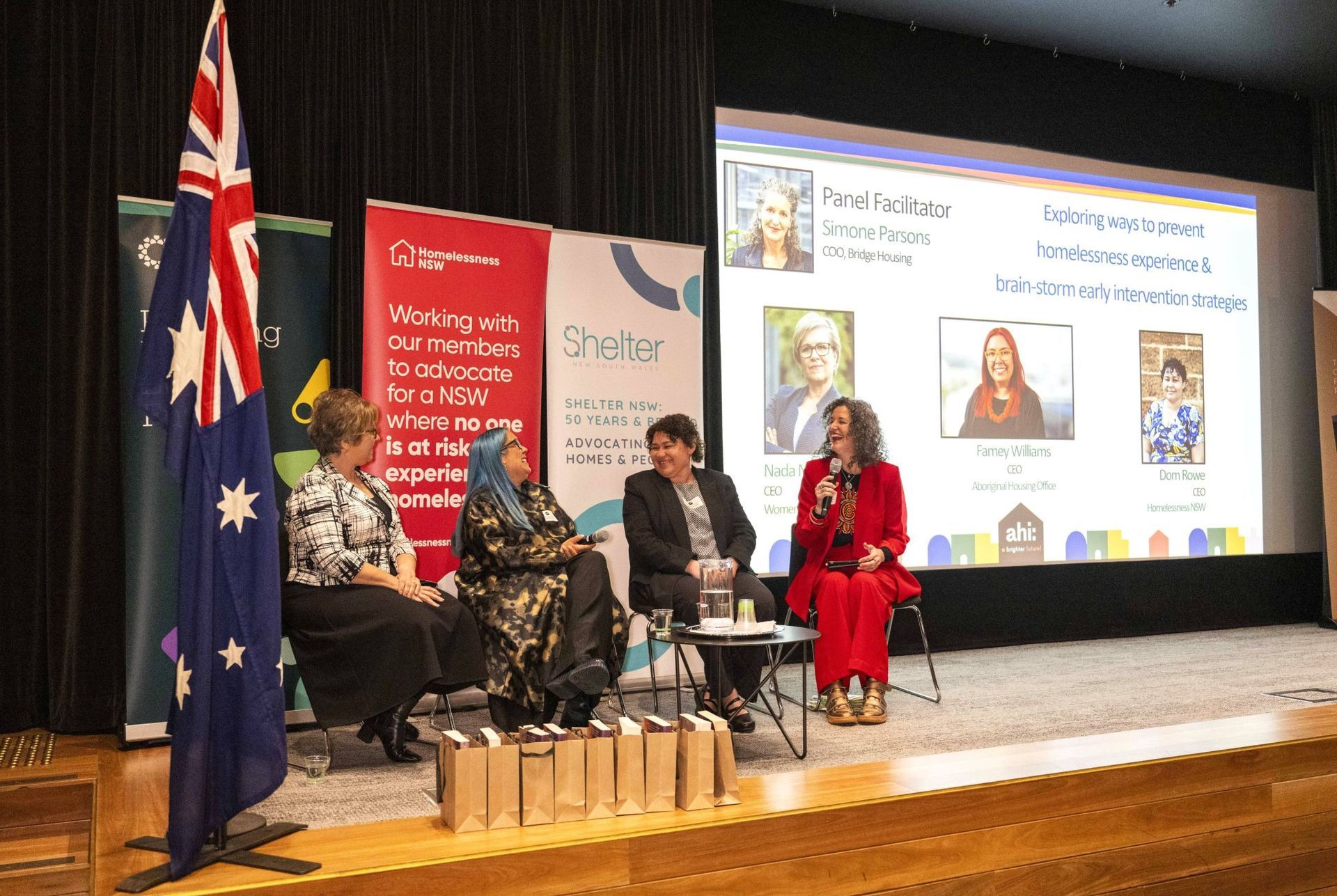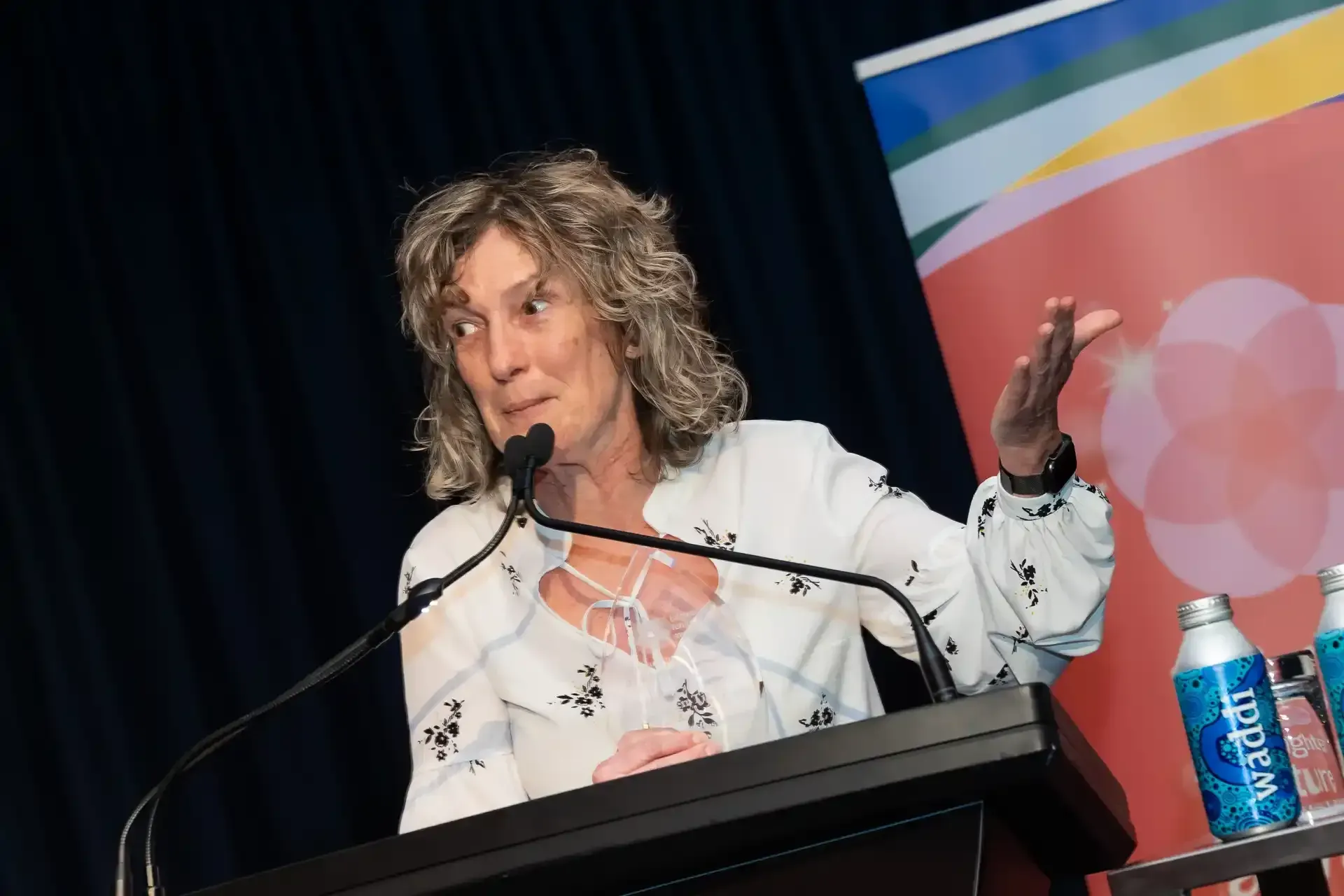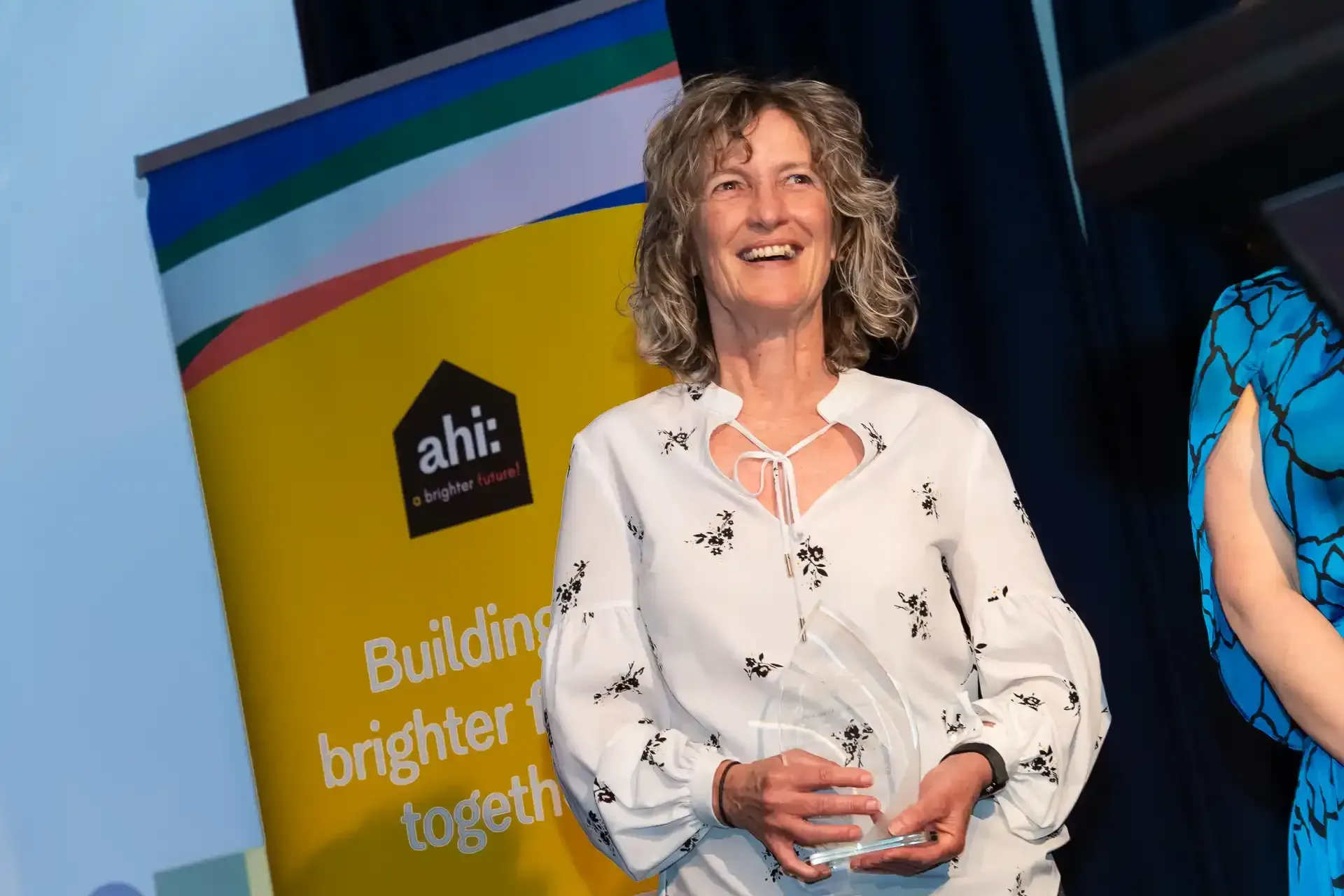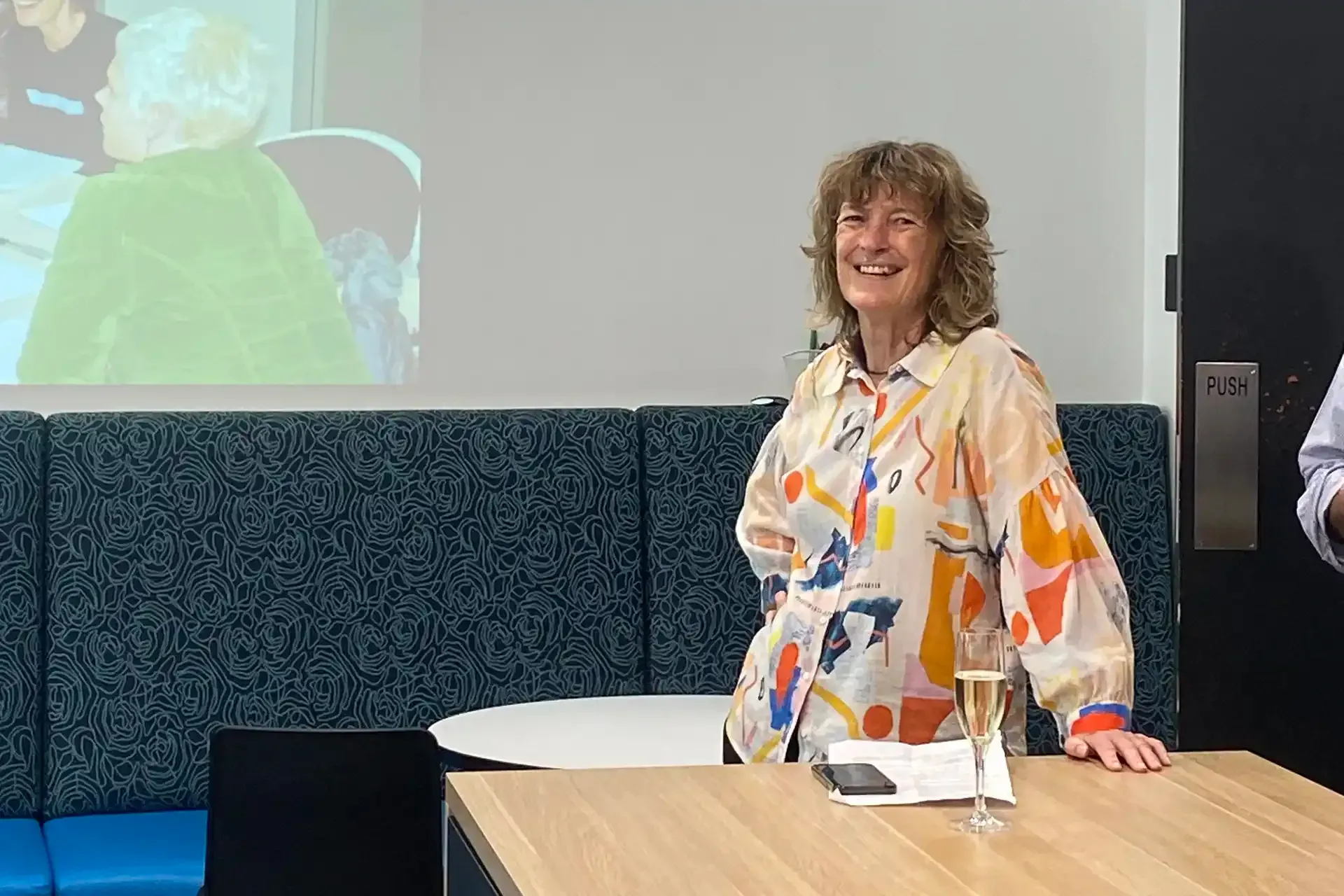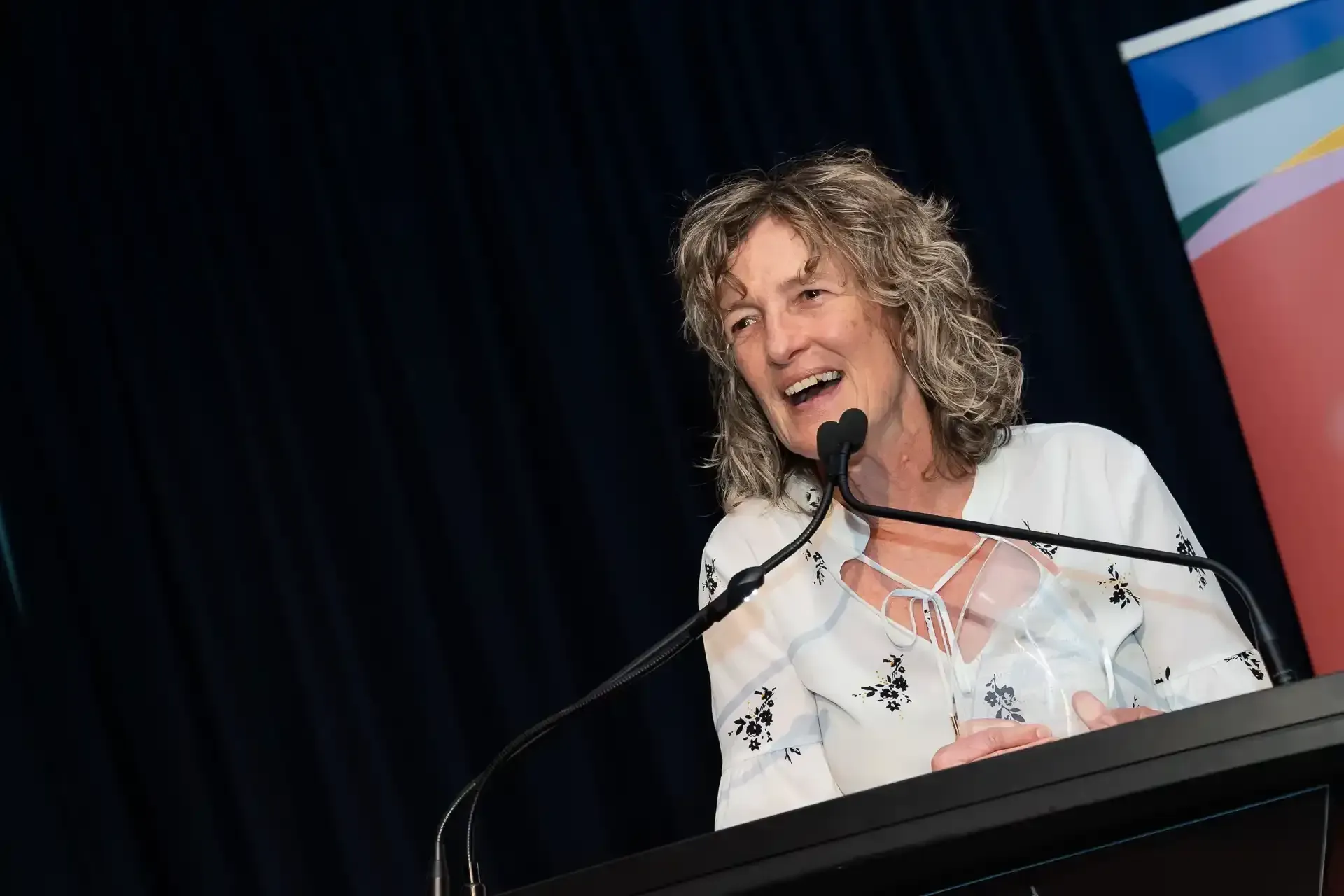“Peer award awards and acknowledgements are very humbling in the very least,” begins Helen Tighe, the winner of the ahi: Brighter Future 2023 Outstanding Achievement Award. “You do think, ‘Ooh, did I really do that myself?” she laughs.
“It's lovely to be acknowledged,” Helen Tighe continues in a serious tone, downplaying her achievements, as many housing professionals tend to do. “I think I came into the sector at a very rich and opportunistic time. Most of our careers are built on the people who go before us, and you work with your colleagues and under the direction of some great people. There's a lot of support in our sector, and I've had the great fortune of benefiting from that.”
Helen’s time as a housing professional dates to the 1990s where she worked in supported accommodation and estate renewal before progressing into the social housing space.
“I met some amazing people trying really interesting things,” she explains of her beginnings. “There was a lot of neighbourhood renewal and local planning, and all sorts of very focused activity, and I had the opportunity to work in western and central Sydney, as well in the high-rise estates and learn from that experience too. So, there was some deep public housing experience before I moved into the community housing sector.”
Helen’s involvement in public housing in Australia had a profound impact on approaches to ending homelessness. She was involved in the first estate renewal approaches in Mt Druitt and established the first intensive tenancy management approach in the Redfern estate, with these ‘place-based approaches’ now recognised as the way to support estate communities across the country.
"She led the way for how we now think about managing large estate communities – whether they’re social housing or private."
“When Helen established the first intensive tenancy management approaches in the late 1990s, place-based approaches had never been applied in this context,” said Rebecca Pinkstone, former CEO of Bridge Housing, and now CEO at Homes NSW, when nominating Helen for the award. “This work led the way for how we now think about managing large estate communities – whether they’re social housing or private. The focus on cross-sector partnerships and place-based responses was groundbreaking practice at the time.”
As Helen explains, “I became involved in the community regeneration unit that rolled out intensive tenancy management approaches in a number of locations across western and central Sydney. And we did quite a lot of analysis and review of it, and I think that's the model that the community housing sector really built upon — that frontline service delivery, where people are embedded in the local community, make connections with local service providers, connect tenants and customers with the services they need and provide some responsive housing management.”
“I think that's where we can see our customers feel most satisfied, and also make the greatest difference to their lives. That was something that I became involved in at a time where it was critical to then roll it out in other locations and then see its impact and understand that there was a model for delivering best housing practice.”
Helen joined Bridge Housing in 2017 after working for over a decade in the NSW Department of Family and Community Services (Housing NSW) where she’d led the implementation of the Department’s property transfer program across NSW. This was the first large-scale transfer from public to community housing management to be undertaken in the state.
"This was the first large-scale transfer from public to community housing management to be undertaken in the state."
Not only did her management of this project radically change the community housing sector in NSW; it would go on to have broader impacts across Australia, with the lessons and experience gained from her model used by other states and territories when undertaking their own property transfer projects.
In her time at Bridge Housing, Helen oversaw the implementation of a range of new programs and service improvement initiatives. In terms of programs, Bridge’s Housing First program has helped over 400 tenants move from living on the streets to safe and secure housing. The Bridge to Work Program — in cooperation with CoACT Employment Services — has assisted over 100 tenants to enter the workforce. The first community housing employment program in NSW, Bridge to Work received recurrent Commonwealth funding for five years. The program now operates through a partnership-based model.
"Being able to provide that kind of difference in people's lives is huge."
“These really proved the fundamentals of what we know: give somebody a roof over their head in stable housing, and many things are the possible,” Helen says. “These programs have lots of examples of people who were able to turn their lives around, connect with their family, start employment, manage their health better, and just improve their wellbeing and those around them as a consequence. Being able to provide that kind of difference in people's lives is huge.”
Officially retired by the time you’re reading this profile, Helen is looking forward to a much slower pace of life — even if sometimes, it doesn’t feel like she’s winding down: “Yeah. I don’t know where the day goes, but it gets busy,” she laughs.
“There's a lot that the world has to offer,” she muses. “There's a whole lot of books that haven't been read. There's a whole lot of walking that hasn't been done. There's a bit of travel on the horizon, and there's a bit of over-parenting to be done! I'm probably over-compensating for times when, perhaps, I was a little more focused somewhere else. But I'm pretty happy with taking a slower pace to life and seeing a bit more of my family than I previously had the opportunity to do.”
"Her passion for social justice and belief in the transformative role that social housing plays as a platform for a better life is infectious."
In commenting on Helen’s legacy, Rebecca Pinkstone believes Helen’s contribution to the sector has been immense: “Her belief that people can change and can transform their lives has been the driving force behind her leadership. Her passion for social justice and belief in the transformative role that social housing plays as a platform for a better life is infectious.”
“She’s mentored a number of young leaders who are excelling in leadership roles across the community housing industry,” Rebecca’s praise continues. “Her commitment extends far beyond her direct leadership, and she maintains these mentoring relationships long after staff have left Bridge Housing. She brings a sense of optimism and hope to her work with staff and tenants alike. Helen Tighe is a true housing professional.”
Helen laughs, “Yeah, look, personally, I think sometimes there's a bit of a, 'you're retiring, of course you're being nominated for the Outstanding Achievement' [award]. But seriously, the acknowledgement from my colleagues has been incredibly heartwarming and humbling.”
“I had a career that spanned working with the likes of Mike Allen [former Chief Executive of Housing NSW], and I had a great manager in my initial involvement with the state government. I'd met Rebecca [Pinkstone] quite early in my career through the government, and we'd worked together quite a lot and had a really positive relationship. There was a whole bunch of people who paved a pathway to work with. Those relationships are deep, so I'd certainly acknowledge them as contributing to my own success — and the inspiring younger leaders coming up.”
“I learnt a lot from all of them.”
Share This Article
Other articles you may like
